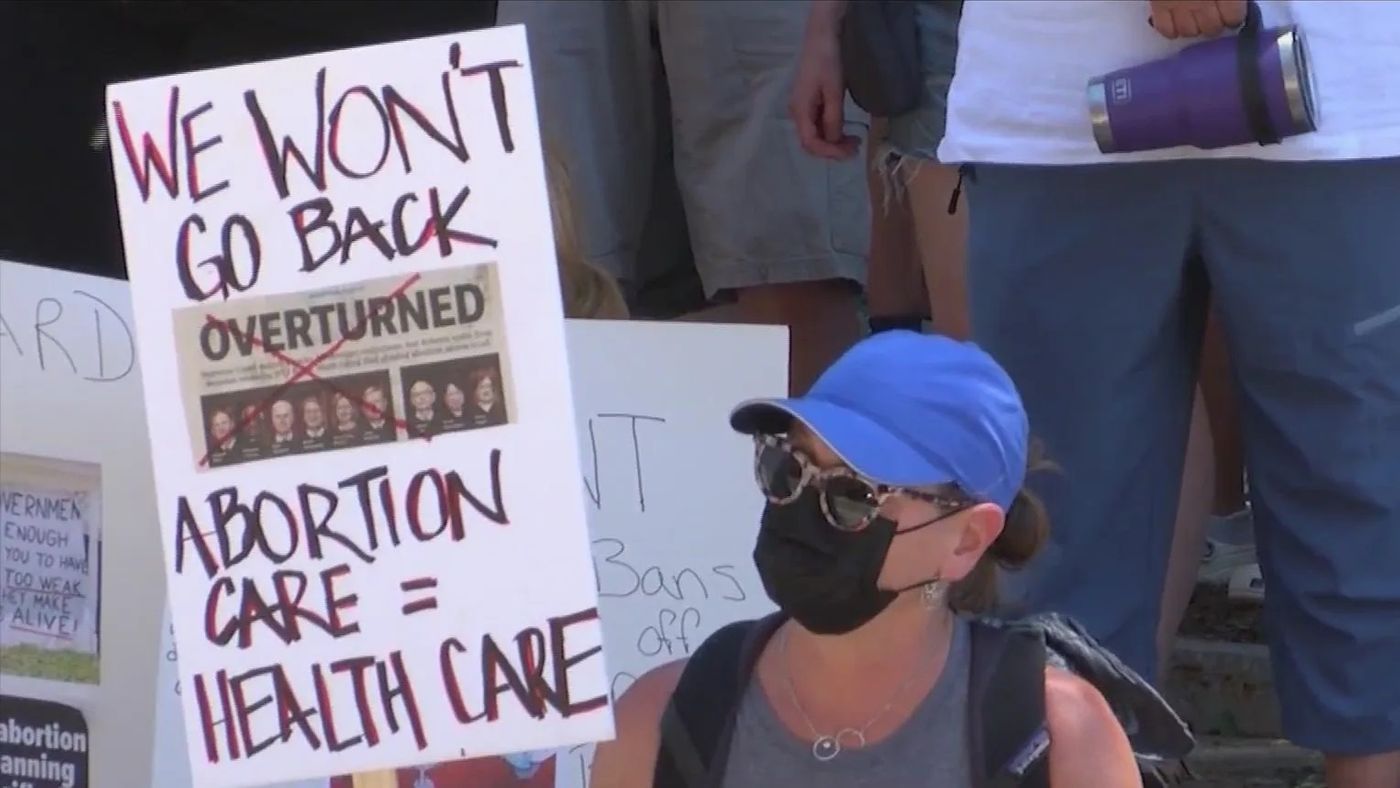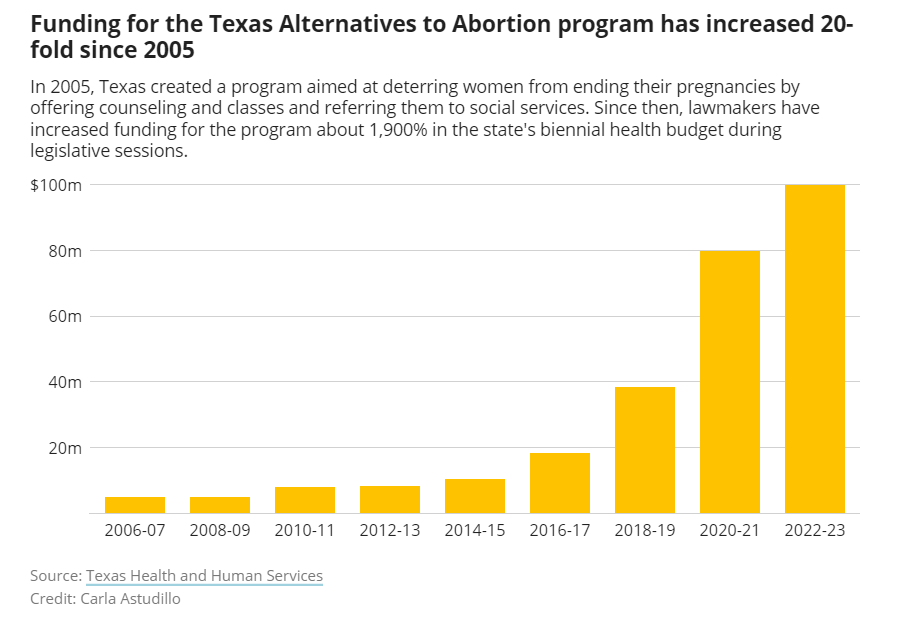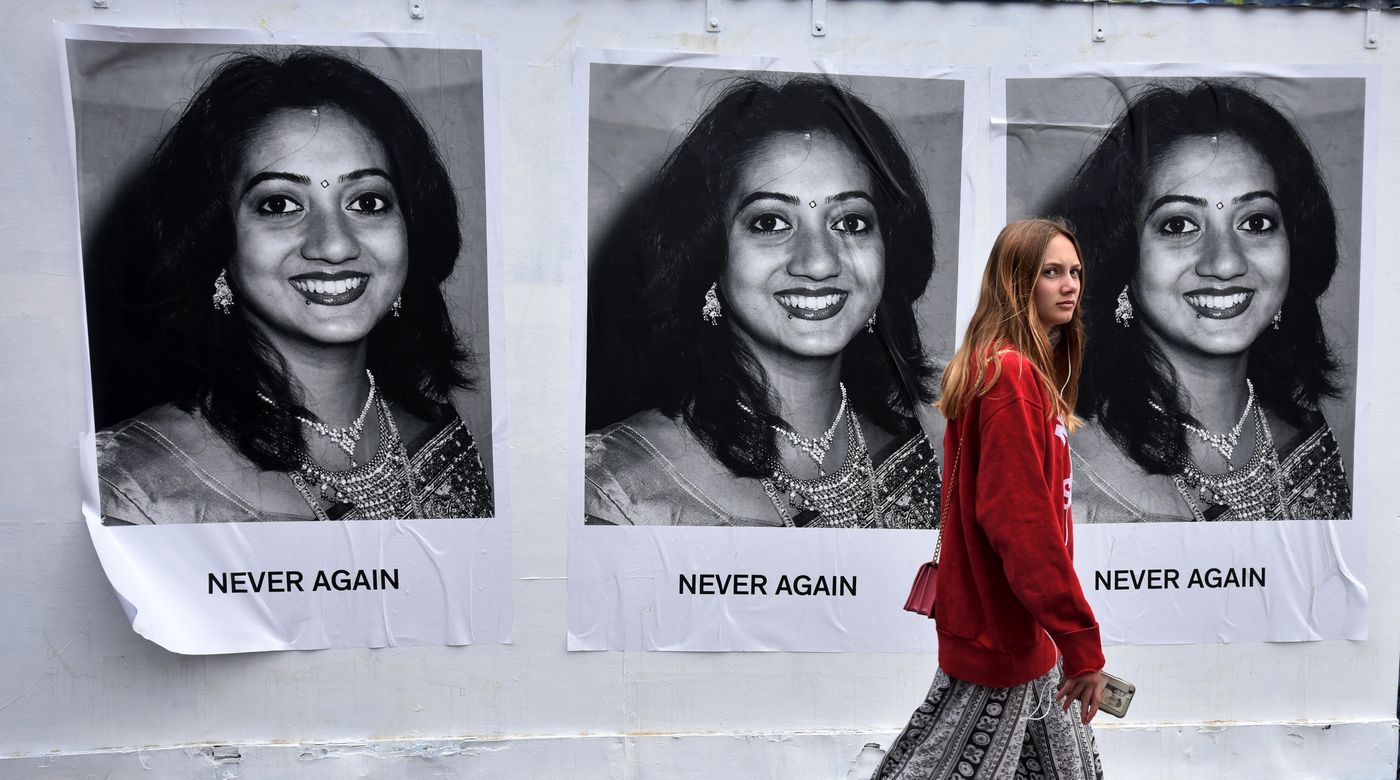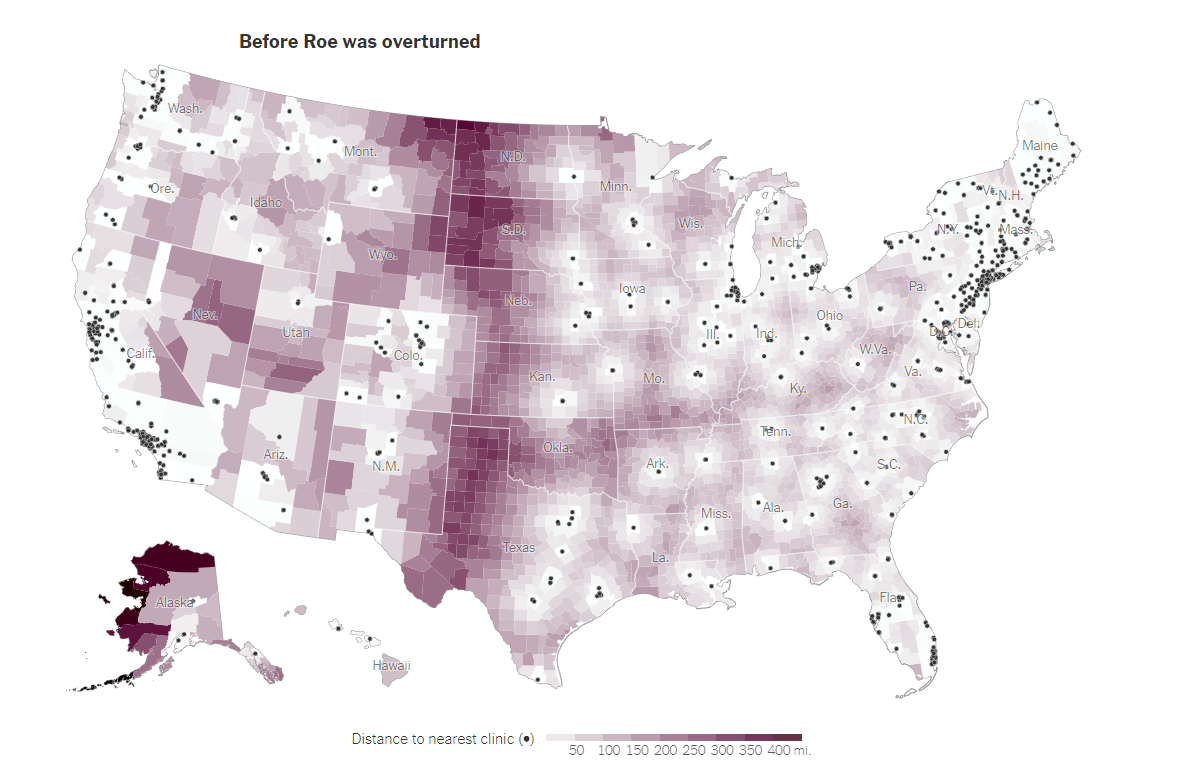Post-Roy America: A Future Worse Than the 1970s
This article appeared in the June 24, 2022 issue of The New Yorker, written by Jia Tolentino and compiled in New Bremen.
Since the leak of the draft judgment in Dobbs v. Jackson Women's Health Organization, a slogan has been heard in America: "We're not going back." With the announcement of the official verdict, the slogan was chanted even louder. Realistically, the slogan is clearly out of touch with reality, considering that abortion rights are not the only rights that are disappearing.

Of course, it is true in the sense that before the Roe v. Wade decision, most American women had no choice but to have illegal abortions. This often leads to their death. More than two-thirds of Americans now support the ruling, and 57 percent believe women can have an abortion anytime.
However, Republicans have warned that if they control the House and Senate, they will ban abortions federally. Anyone who could become pregnant has to face the hard truth: Half the country is in the hands of legislators who think your personality and autonomy are conditional. They believe that if you become pregnant under any circumstances, you have a legal and moral obligation to conceive, give birth, and take care of what is likely to be 20 years or more, regardless of whether it affects your body, mind, family or not. , your plans, desires and life with devastating consequences.
What's more, many who thought the decision was unimportant didn't find it. The anti-abortion movement in the states has made the future worse. Rather than a time when we only had to worry about whether abortion is safe, we have entered an age where abortion is subject to severe penalties and state surveillance. And that's not just for pregnant women, but also for doctors, pharmacists, clinic staff, volunteers, friends, loved ones, and anyone who has physical contact with a pregnant woman who isn't giving birth in a healthy way.
Transporting Abortion Pills = Drug Trafficking
Abortion pills are key to reducing abortion mortality. These drugs can be provided to pregnant women through online consultations and by mail. Nineteen states require women requesting abortion pills to see a doctor in person, but women can still seek help from doctors in other states and abroad. An Austrian-based women's organization has been providing abortion pills to pregnant women around the world since 2005. The group's director, Rebecca Gumpter, said the abortion pill was safer than bleach.
Patients taking abortion pills require clinical guidance and follow-up. However, getting medicines by mail is now more risky. Missouri is preparing to pass a law that would define the transportation and supply of abortion pills as drug trafficking. Current law in Louisiana makes it a criminal offense to mail abortion pills, punishable by six months in prison.
To avoid legal risk, many women drive to see doctors and take abortion pills in states where abortion is legal. In Texas, many women took a more risky approach, driving to Mexico to buy abortion pills from unregulated pharmacies. The scary thing is that these pharmacies are likely to give wrong recommendations. And women who lack the money and time to travel across state lines are likely to smuggle abortion pills on their own, and many don't even know the exact time of their pregnancy. These women will be forced to choose between health risks and legal risks.
Surveillance is everywhere
In states that have or will ban abortion, browser history, text messages, your GPS location information, payment details and even menstrual records, anything related to pregnancy will become evidence in a criminal investigation. As long as the prosecutor thinks you intend to have an abortion, he has the right to inspect everything. Even if he fails to prove the abortion, the person being checked will suffer in the process.
This is not the future, but reality.
Five years ago, Mississippi police operator Latis Fisher gave birth to a stillbirth at home after thirty-six weeks of pregnancy. The mother-of-three admitted at the police station that she didn't want or have the energy to take care of more children because she was paid as little as $11 an hour. Police searched her phone and found that she had searched for abortion pills.
There was no evidence that she took the abortion pill. In the United States, one woman has a stillbirth for every 160 pregnancies. Still, the district attorney charged her with second-degree murder. Unable to post $100,000 bail, Fisher was held for several weeks. Under pressure from society to release Fisher, the district attorney still provided the grand jury with the results of a medically unreliable "lung flotation test" to prove Fisher committed murder. After three years, the grand jury finally dismissed the leave to indict.
Currently, more than one million abortions and miscarriages occur each year in the United States. The two things are medically indistinguishable. Because of this, states that ban abortion are resorting to a variety of ways to find abortionists. Some states have established legal foundations for establishing government databases on abortion.
In 2021, Arkansas passed a bill called Every Mom Counts. The bill states that all women considering abortion should call the state's designated hotline and register with the government's database. Since then, six states have passed similar laws. These hotlines, usually run by the pro-abortion Christian group Crisis Pregnancy Centers, enthusiastically advise women not to have abortions. In contrast to abortion clinics and hospitals, these groups do not protect the privacy of pregnant women, collecting the names, addresses, family information, medical histories and ultrasound results of pregnant women who attempt abortions. Now, this information will likely be used to punish abortionists.

In 2021 Texas passed the Texas Heartbeat Act, which encourages ordinary citizens to sue anyone who provides assistance with an abortion. In 2022, Missouri is trying to pass the same bill, offering a $10,000 reward for prosecuting anyone who helps a state resident get an abortion elsewhere. And recent anti-abortion policy recommendations from the anti-abortion group the National Commission on the Right to Life encourage states to criminalize those who "provide information on abortion via the telephone, the Internet, or any other medium." The laws would incentivize self-proclaimed sheriffs to go after abortion providers.
Given that the internet economy is fully established on the issue of tracking information, there is a good chance that abortionists will be detected. A Vice reporter paid just $160 to purchase leaked information from more than 600 abortion clinics. Currently, these bills primarily target people who provide abortion services, but now that states such as Connecticut have passed laws prohibiting local agencies from cooperating with out-of-state prosecuting abortion cases, it will be difficult to sue out-of-state doctors and providers of abortion pills, seeking to Abortion people and abortion advocates will be next.
if the fetus is alone
The anti-abortion movement is largely based on a theological concept known as "fetal personality." This philosophy holds that from the moment of conception, the fetus is a complete human being and should enjoy equal or superior rights. The legal application of this idea will likely surpass the thinking of many pro-abortionists, and it will make the IUD, the birth control pill, all classified as a means of murder. Still, the anti-abortion movement has worked tirelessly and publicly to push the idea into a foundation of U.S. law.

That philosophy would point to a legal framework that would require a woman to protect her fetus at all costs. This framework has had disastrous results in Ireland before 2018 and in Poland now. In Poland, pregnant women with cancer were often denied chemotherapy because it could harm the fetus; in Ireland, it led to the tragic death of Savita Harapanawa and ultimately led to the legalization of abortion in Ireland.
Previously, Georgia and Alabama have passed fetal personality laws. For now, it seems unlikely that the laws in either state will be ruled unconstitutional by the current Supreme Court. These laws allow women to be arrested for any conduct deemed potentially harmful to the fetus. Such arrests, mostly low-income minorities, have been made for the past four decades, and conservative prosecutors have been trying to do so even in California, where the law expressly prohibits the prosecution of such pregnant women.
The National Maternity Advocate, which provides legal aid for most of the cases mentioned in this article, recorded 1,800 cases between 1973 and 2020. The vast majority of these cases are drug-related, with many women charged with child abuse, drug distribution to minors, assault with a deadly weapon, manslaughter or even homicide for taking drugs while pregnant.
In 2020, law enforcement in Alabama charged a woman with prescription fraud because she used prescription hydrocodone to ease her pain. Oklahoma recently indicted a large number of women who had miscarriages for manslaughter simply because they took drugs during their pregnancy. In Wisconsin, more than 400 pregnant women are detained and treated for possible drug use each year. In Wyoming, a law under consideration would define drug use during pregnancy as a crime against children. The charge has already been brought up in Tennessee, and was eventually dropped because it caused obstetricians to refrain from administering drugs to pregnant women, resulting in maternal deaths.
These laws are preventing many women who are trying to conceive but have difficulty seeking medical care from getting the necessary assistance. Physicians in states with abortions are concerned that they are being viewed as offering abortion services and denying treatment to women who have miscarried. A Texas woman was told she had to drive 15 hours to Mexico to treat her ectopic pregnancy. The use of the abortion pill would have solved the problem, but pharmacists in Texas are refusing to prescribe them for fear of legal risks. A nationwide ban would lead to a more than 21 percent increase in pregnancy-related deaths, which could result from uterine perforations, organ failure and infections, the study said.
Most miscarriages result from factors beyond the pregnant woman's control, but laws in many states have made preserving the fetus their own responsibility. Pregnant women are asked to refrain from alcohol, coffee, retinol, turkey, unpasteurized cheese, hot baths, strenuous exercise, and taking drugs, many of which are not enough pseudoscientific myths. Factors such as poverty, chemical pollution, and night shift work that could actually significantly increase the risk of miscarriage were never discussed. As the concept of "fetal personality" spreads, pregnant women could be sued, or prevented from traveling, working or any activity deemed to put the life of their unborn baby at risk.
Necessary prerequisites for justice and equality
Today's anti-abortion movement considers the tactics of previous decades "weak". In the past four years, 11 states have had abortion bans that do not include exceptions such as rape and incest victims, an unimaginably extreme case for many anti-abortion supporters. In Texas, many children who didn't even know what sex was, were forced to conceive and give birth after being raped; women with sepsis after miscarriages were denied treatment simply because their fetal hearts had not stopped; many People are painfully trying to care for children they would otherwise be unable to care for because they live in states where abortion is not possible.
Medical research indicates that pregnancy is thirty times more dangerous than abortion. Many women die not from illegal abortions, but from lack of care. They died of postpartum infections, preeclampsia, bleeding simply because they were forced to keep an unwanted fetus. Half a century ago, the anti-abortion movement was dominated by pro-welfare Catholics. Today, the dominants have become single-minded conservative evangelicals. They advocate adoption, foster care, and charity, but scoff at any advocacy that promotes public policy in favor of pregnant women and children.
Just as the mainstream abortion rights movement has ignored the inadequacies of the Roe decision, they have largely ignored these issues. In the face of all this, many advocates of abortion rights still view abortion as an unfortunate choice; many advocates of abortion rights still devalue abortion and care itself; many advocates of abortion rights still emphasize reproductive rights over reproduction justice.

In fact, even before the Roe case was overturned, poor and minority women in conservative states had lost access to abortion. They can only be sued and forced to raise their children on their own after pregnancy, miscarriage, stillbirth and even healthy childbirth. The airtight class divide is widening every day. This is an important reason why we are where we are today.
We're not going back to the pre-Roy era, and we shouldn't just want to go back to the Roy era. That era wasn't as painful as it is today, but it wasn't nearly as good. We should ask for more, and we must ask for more. We need full and unconditional abortion rights, we need better development, a necessary precondition for justice and equality.
(Editor in charge: New Bremen)
Like my work? Don't forget to support and clap, let me know that you are with me on the road of creation. Keep this enthusiasm together!
